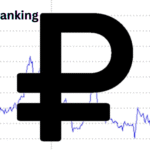Lotology, an intriguing blend of statistical analysis, human psychology, and cultural storytelling, is the study of lotteries—how they work, why we play, and whether patterns can be found in what’s designed to be entirely random. The lotology term may sound whimsical, but it encapsulates a surprisingly serious field of inquiry that crosses over into probability theory, behavioral economics, and even sociology.
Around the world, millions of people participate in lottery games daily, lured by the dream of instant wealth. Yet, despite the odds stacked astronomically against them, people continue to invest in tickets. Why? That’s precisely the question lotology aims to answer. It goes beyond lotology the numbers to dissect patterns, study player behavior, and understand how the lottery has become a modern-day symbol of hope.
In this article, we’ll explore lotology from every angle—its origins, the mathematics behind it, the psychological hooks that keep players coming back, and the impact it has on society. We’ll also investigate whether some of the famous “lotologists” who claim to have cracked the lotology code actually did, and what modern technology means for the future of this fascinating study.
The Origins and Evolution of Lotology
The roots of lottery systems stretch back thousands of years. Ancient China used lottery-like games to fund major projects, such as the Great Wall, while Romans held raffles during festivals. In Renaissance Europe, governments began to use lotteries as a method to raise public lotology funds without direct taxation. While these early systems were more rudimentary, the concept of pooling stakes for a chance at a grand reward remained constant.
The term “lotology” isn’t found in traditional academic literature, but in the world of enthusiasts and number analysts, it has come to represent the informal science of studying lottery numbers and trends. As national lotteries became more widespread in the 20th century, lotology a subculture of individuals dedicated to analyzing past results and predicting future draws began to emerge. These self-proclaimed lotologists weren’t content with chalking up outcomes to luck—they believed there was a hidden system or at least patterns worth exploiting.
Over time, lotology evolved with the technology available. From handwritten journals and numerical tallies to advanced spreadsheets and algorithms, the practice became more sophisticated. The internet added another layer, allowing enthusiasts across the globe to share strategies and theories. While most mainstream mathematicians remain skeptical, lotology has solidified its place in the broader cultural narrative of chance, hope, and statistical obsession.
Mathematics and Probability in Lotology
At the heart of any serious approach to lotteries is mathematics—specifically, probability theory. Most standard lotteries, like the 6/49 format, are designed lotology with astronomical odds to ensure profitability for organizers. In this case, the chance of winning the jackpot is about 1 in 13.98 million. Lotologists attempt to reduce these odds—or at least make more “educated” guesses—through various strategies.
One such strategy is frequency analysis, which involves studying past draws to identify numbers that appear more frequently. While modern lotteries claim lotology to use random number generators or thoroughly shuffled physical balls, some enthusiasts believe that mechanical bias or flawed algorithms may cause certain numbers to appear more often than statistically expected.
Other popular systems include the delta system, which involves choosing numbers based on the difference between adjacent numbers in past winning sets, and wheeling systems, which allow players to cover more combinations by playing mathematically constructed lotology groups of numbers. While none of these methods guarantee success, they offer a structured way to play, giving the illusion of control in an inherently chaotic process.
Critics argue that these patterns are mere coincidences—inevitable in large datasets of random numbers. Still, for many, lotology is not about certainty but about increasing lotology odds, however marginally, while engaging in an intellectually stimulating hobby.
Psychological Aspects of Lottery Participation

The allure of the lottery isn’t just about math—it’s deeply psychological. Humans are wired to be drawn to stories of transformation, and few narratives are more lotology powerful than “rags to riches.” The mere act of buying a ticket often delivers a psychological high, a momentary escape into the realm of possibility where bills are paid, dreams are fulfilled, and freedom is within reach.
Cognitive biases play a major role in lottery participation. One common fallacy is the “gambler’s fallacy,” where players believe that certain numbers are “due” after not appearing for a while. Another is the “illusion of control,” where people think they can influence random outcomes lotology through rituals, lucky numbers, or strategic picks. These biases skew perception, making the odds feel more favorable than they truly are.
Lottery marketing leverages these psychological quirks masterfully. Commercials often highlight past winners, focus on the joy of dreaming, and downplay the astronomical lotology odds. The result? A powerful emotional loop that keeps players engaged week after week. For some, it becomes more than a game—it’s a ritual, a source of hope, and a symbolic lifeline.
Lotology taps into this psychology by offering players a sense of empowerment. Even if the strategies are unproven, having a system provides comfort, turning what feels like blind luck into a challenge of logic and persistence.
Famous Lotologists and Their Theories
A few names stand out in the world of lotology—individuals who claim to have beaten the system, often multiple times. One of the most famous is Stefan Mandel, lotology a Romanian-Australian economist who won the lottery 14 times. Mandel didn’t rely on luck; he created a formula that allowed him to buy every possible combination in small lotteries with favorable odds. His most famous win involved syndicates and careful financial planning.
Another notable figure is Richard Lustig, a Florida man who claimed to win seven lottery grand prizes. Lustig wrote a book outlining his methods, which emphasized lotology consistency, choosing your own numbers rather than quick picks, and reinvesting small wins into more tickets. While some lauded his strategy, skeptics questioned whether his wins were statistically significant or just anomalies.
These personalities added legitimacy and intrigue to lotology, sparking debates about whether the lottery can truly be cracked. Their stories inspire hope but also raise ethical and legal questions about system manipulation. While Mandel’s approach was eventually banned due to its lotology effectiveness, Lustig’s methods remain a subject of contention—are they genuine insights or just survivorship bias?
Regardless, their theories continue to fuel the lotology movement, lotology proving that for many, the dream of predictability in randomness is too compelling to ignore.
Lotology in the Digital Age
The internet and advancements in data analytics have revolutionized lotology. Today, thousands of websites and apps promise to improve your chances with smart number selections, pattern analysis, and AI-powered predictions. While some tools are grounded in statistical lotology methods, others border on pseudoscience, offering numerology-based predictions or “lucky” number generators with little mathematical merit.
Online communities have also flourished, with forums like Reddit’s r/lottery and dedicated Facebook groups where enthusiasts discuss past draws, test strategies, and share software tools. This has democratized lotology, making it accessible to anyone with a computer or smartphone. lotology However, this accessibility comes with risk. Scammers and fraudsters often target hopeful players with false promises of insider systems or guaranteed wins.
Artificial intelligence is the latest frontier. Machine learning algorithms can process thousands of past draws in seconds, looking for patterns or anomalies. Some claim success, but lotology most experts agree: unless the underlying system is flawed, no amount of computing power can overcome true randomness.
Still, technology has added a new dimension to lotology—one that blends modern data science with timeless human hope. Whether it leads to actual breakthroughs or just smarter ways to play responsibly, the digital age ensures that lotology remains an evolving and engaging pursuit.
Conclusion
Lotology is more than just number crunching or wishful thinking—it’s a fascinating intersection of logic, luck, and longing. It invites us to question randomness, to seek meaning lotology in chaos, and to believe, if only for a moment, that we might beat the odds. While the academic world may scoff at the idea of decoding something inherently unpredictable, lotology persists as a hobby, a study, and a subculture.
From ancient raffles to AI-generated predictions, the lottery has always mirrored the human condition: a delicate dance between fate and free will. Whether you play for fun, for lotology strategy, or out of tradition, lotology reminds us that in the realm of dreams, even numbers can tell stories.
FAQs
Is lotology a real science?
While not officially recognized as a science, lotology combines principles of statistics, psychology, and pattern analysis.
Can studying past lottery lotology numbers actually improve my chances of winning?
Mathematically, no. But some lotology believe strategic play may marginally improve outcomes in specific conditions.
What’s the most successful lotology lottery strategy ever recorded?
Stefan Mandel’s strategy of lotology buying all combinations in small lotteries has been the most mathematically sound.
Why do people keep playing the lotology lottery despite the odds?
Hope, dreams, and psychological biases lotology drive continued participation.
Are lottery prediction apps and systems lotology trustworthy?
Some use valid statistical tools, but many rely on lotology pseudoscience. Always exercise caution.
You May Also Read: https://techbusinessus.com/rub-ranking/





